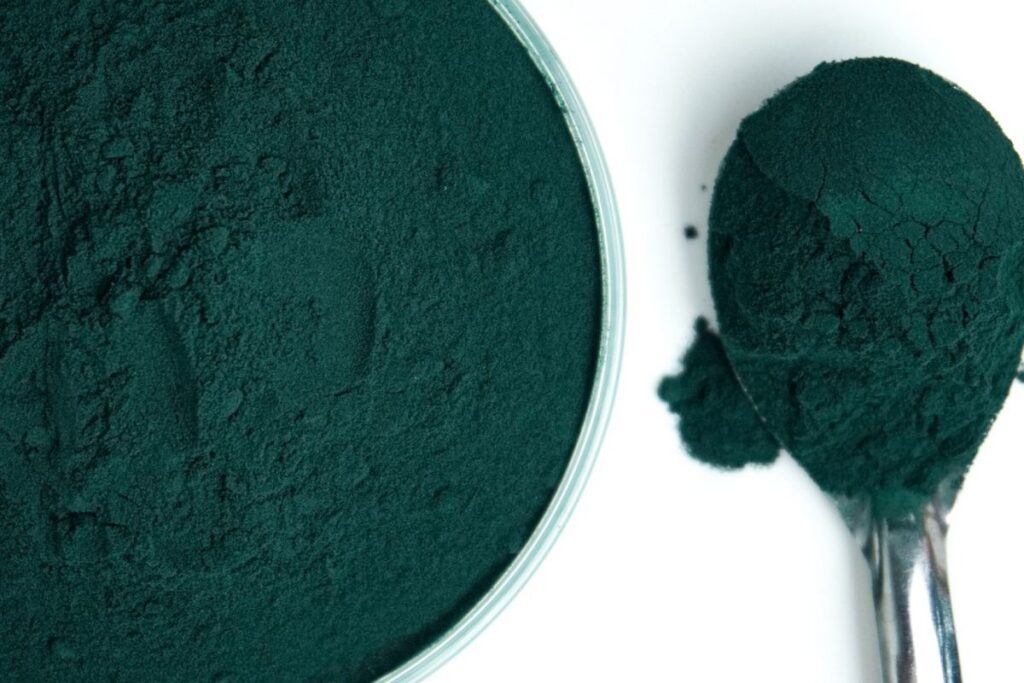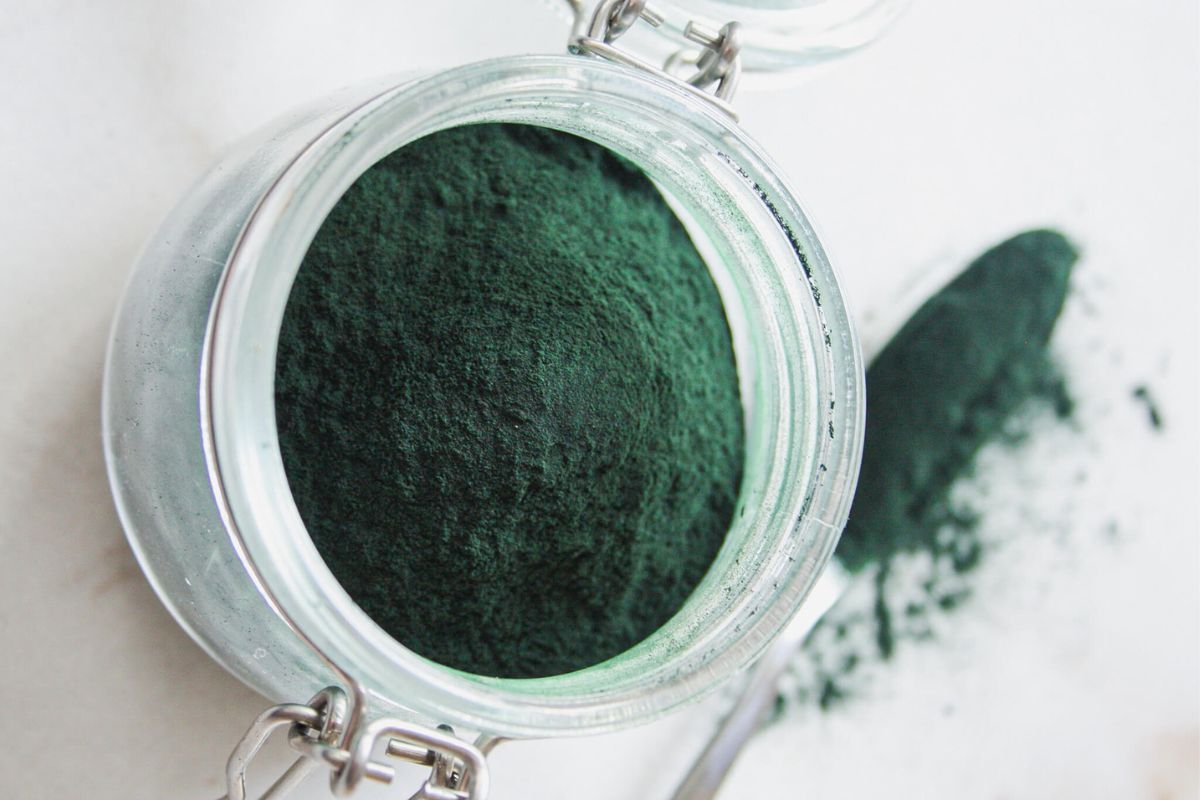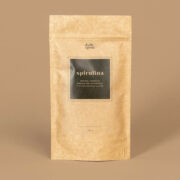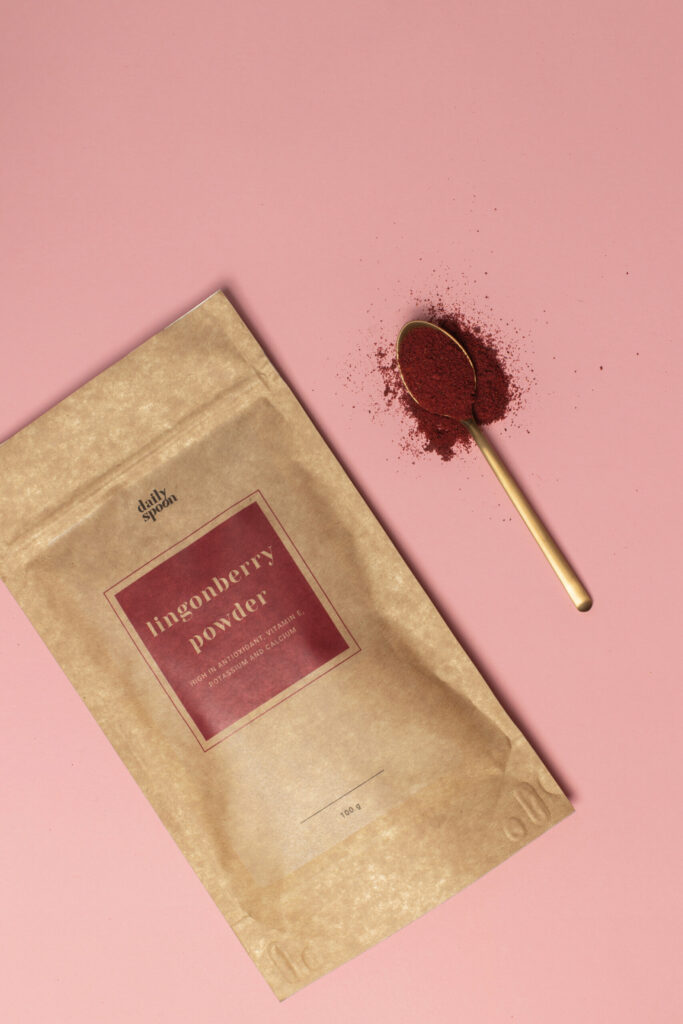Spirulina is a type of blue-green algae commonly found in bodies of water in warmer climates. These algae are rich in various nutrients, which is why spirulina is considered a superfood, and its health benefits have been confirmed by scientific research. Although blue-green algae have been consumed for centuries, spirulina supplements only began to be produced in the 1970s.
Spirulina is rich in proteins, vitamins, minerals, carotenoids, and antioxidants, but contains no sodium (salt) or cholesterol.
In one tablespoon (7 g) of dried spirulina powder, there are:
- 4 g protein;
- 14% of the recommended daily intake (RPN) for vitamin B1;
- 20% of the RPN for vitamin B2;
- 6% of the RPN for vitamin B3;
- 47% RPN copper;
- 11% RPN iron;
- all amino acids, etc.
Spirulina is also valued for its chlorophyll. Chlorophyll is the green pigment that colors leaves and is a substance well absorbed by our bodies. It is a natural food pigment and is also widely used in pharmaceuticals. Chlorophyll and its derivatives have health-promoting properties and may help prevent nerve damage, metabolic syndrome, viral diseases, chronic inflammation, and more.
How long and how to take spirulina?
A common question from customers is how to take spirulina. It is believed that to achieve positive effects, spirulina should be taken for at least 2–3 months.
Today, spirulina is available in the form of capsules, tablets, or powders. It is a common ingredient in green smoothies and various snacks, such as protein bars.
Spirulina has a distinctive taste that appeals to fans of natural products. One of the standout features of these blue-green algae is their rich green color. The powder can be sprinkled into smoothies, salads, or soups, mixed into yogurts, porridge, and even added to baked goods or drinks (such as a glass of juice or water). Therefore, the possibilities for using spirulina are nearly endless.
Health benefits of spirulina
Spirulina is very beneficial for health: it has a positive effect on the cardiovascular system and blood pressure, and it also helps regulate body weight. The active compound in spirulina, phycocyanin, has strong antioxidant and anti-inflammatory properties.
Decreased levels of bad cholesterol
Spirulina supplements can significantly help reduce levels of low-density lipoproteins (bad cholesterol) and triglycerides. Vieno tyrimo dalyviai 2–48 sav. Researchers concluded that spirulina positively affects the heart and circulation. However, the beneficial effects of spirulina are observed when it is taken for a longer period, at least 3 months.
Other representative studies have emphasized that blue-green algae can be a natural and effective means of normalizing blood lipid profiles, preventing inflammation and oxidative stress, and increasing cardiovascular resilience.
Improved control of high blood pressure
Hypertension, or high blood pressure, affects nearly half of the population in developed countries and increases the risk of heart disease and stroke. Spirulina products can help normalize blood pressure. In fact, recent scientific research shows that it is a promising alternative that positively influences the treatment of hypertension.
Gut health
Although there is currently a limited number of studies demonstrating the positive effects of spirulina on gut health, one scientific study indicates that spirulina helped preserve gut health as the body aged. Additionally, it has prebiotic properties, which may promote a healthy gut microbiome.
More effective weight control
Spirulina boosts metabolism, making us feel more energetic and enabling our bodies to burn more kilocalories each day, which is especially relevant for those looking to lose weight.
Blue-green algae can also help reduce body mass index and waist circumference. In one study, overweight individuals regularly consumed spirulina for 3 months. The observed effect was positive weight changes, indicating that spirulina can indeed be applied for weight loss.
Increased muscle strength and endurance during workouts
Spirulina is very beneficial for athletes as it can help increase endurance and muscle strength. In one study, men consumed 6 g of spirulina daily for 4 weeks. While exercising, they experienced less fatigue for a longer period compared to other participants who took a placebo (i.e., an analogue that did not contain spirulina).
Additional aid for those with anemia, helping to increase hemoglobin levels
Anemia (a deficiency of hemoglobin) causes significant fatigue. In a study involving older women, it was found that spirulina increased hemoglobin levels in the body.
Blood sugar level control
It has been proven that spirulina effectively helps control blood glucose levels. One tablespoon of spirulina contains about 4 grams of protein, which helps optimize blood sugar levels. Therefore, spirulina can be very beneficial for individuals who are beginning to develop insulin resistance.
May alleviate allergies
Spirulina supplements may also protect against allergic reactions, as they help inhibit the release of histamine—a biologically active substance that affects the immune response and causes allergy symptoms. A study found that individuals suffering from allergic rhinitis (hay fever) who consumed 2 grams of spirulina powder daily experienced a reduction in nasal discharge, sneezing, nasal congestion, and itching.
Supports mental health
Spirulina can also help maintain good mental health and may assist in managing mood fluctuations. This superfood contains tryptophan, an amino acid that increases the levels of serotonin (the “happiness hormone”) in the brain. Therefore, spirulina may contribute to reducing and alleviating symptoms of depression, bipolar disorder, eating disorders, and anxiety disorders.

Possible side effects of spirulina
By the way, if you decide to assess the benefits of spirulina, it’s important to be aware of the potential side effects as well.
Spirulina can thin the blood, so if you have blood clotting disorders or are taking blood-thinning medications, you should not exceed the recommended dosage of spirulina powder (the maximum amount is 1–2 teaspoons of spirulina powder per day).
If you have an autoimmune disease, there may also be potential side effects or reactions to algae.
There is information circulating in the public domain that algae growing in marine environments can accumulate heavy metals, harmful bacteria, or microcystins. However, our suppliers carefully monitor the cultivation process: spirulina is grown in specially controlled closed water systems, which helps mitigate the risk of contaminating the product with heavy metals. Additionally, continuous testing is conducted, ensuring that only the highest quality, healthy spirulina reaches your daily table.
Therefore, for those asking which spirulina is the best, we can provide just one answer—the one that is safe to consume.
Spirulina: reviews
Many users report noticing the positive effects of spirulina primarily on their digestive system.
Many spirulina users also share feedback that they found it somewhat challenging to get used to the slightly unusual taste of the product. However, they eventually discovered ways to incorporate the green powder effectively; for example, the aftertaste of spirulina is hardly noticeable in fruit smoothies.
Spirulina powder offers benefits that surpass most synthetic supplements and prebiotics. If you haven’t discovered it yet, now is the perfect time to explore what nature has to offer you—wonderful “Daily Spoon” spirulina!
Daily Spoon originated from the desire to see a different type of healthy lifestyle product in Lithuania—one without empty promises or miraculous weight-loss teas, but rather focused on what is backed by science and helps you shine and feel good.
Radvilė
Founder of Daily Spoon
Sources:
- The Structure, Functions and Potential Medicinal Effects of Chlorophylls Derived from Microalgae
- Quantifying the effects of spirulina supplementation on plasma lipid and glucose concentrations, body weight, and blood pressure
- Health Benefits of Blue-Green Algae: Prevention of Cardiovascular Disease and Nonalcoholic Fatty Liver Disease
- Novel Potent Decameric Peptide of Spirulina platensis Reduces Blood Pressure Levels Through a PI3K/AKT/eNOS-Dependent Mechanism
- Spirulina Protects against Hepatic Inflammation in Aging: An Effect Related to the Modulation of the Gut Microbiota?
- A systematic review and meta-analysis of the impact of Spirulina supplementation on plasma lipid concentrations
- Ergogenic and antioxidant effects of spirulina supplementation in humans
- The effects of Spirulina on anemia and immune function in senior citizens
- Quantifying the effects of spirulina supplementation on plasma lipid and glucose concentrations, body weight, and blood pressure
- The effects of spirulina on allergic rhinitis











